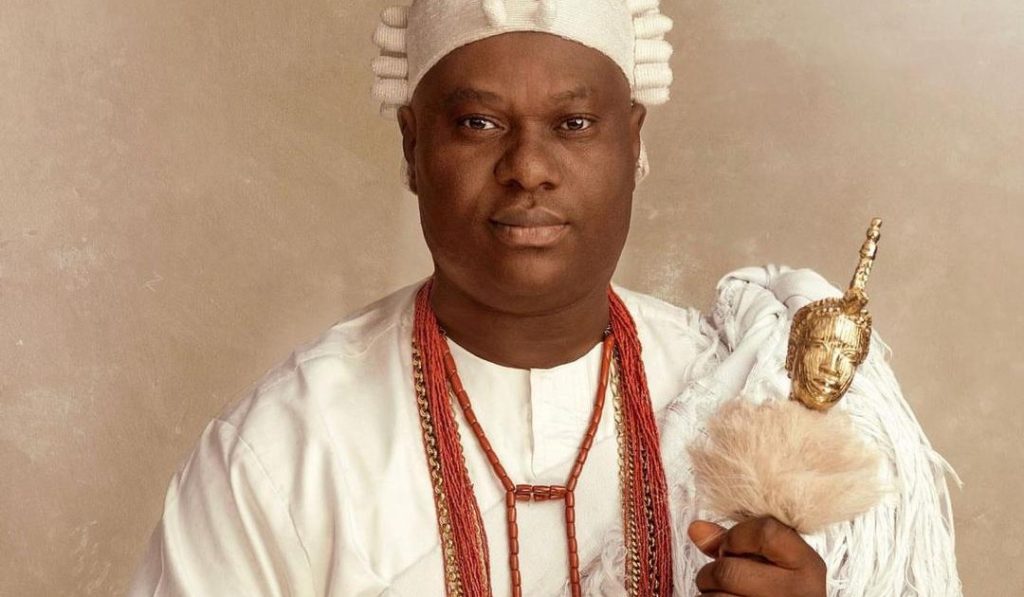The Lowa Adimula of Ile-Ife, Ademola Adeyeye, has unequivocally asserted the unparalleled status of the Ooni of Ife, Adeyeye Ogunwusi, within the Yoruba traditional leadership structure. Adeyeye, speaking during a press conference commemorating his 70th birthday, emphasized that the Ooni occupies a unique position not as a rival but as the paternal figure and spiritual leader of the entire Yoruba race. This, he argued, makes any comparison with other Yoruba monarchs inappropriate and underscores the Ooni’s inherent superiority, which transcends mere temporal power and delves into the spiritual realm, connecting him to the ancestral heritage and collective identity of the Yoruba people. This declaration serves to solidify the Ooni’s position as the apex authority within the Yoruba traditional system and reinforces the historical and cultural significance of Ile-Ife as the cradle of the Yoruba civilization.
Central to Adeyeye’s argument is the concept of spiritual leadership, which elevates the Ooni’s role beyond the confines of administrative duties. The Ooni, according to Adeyeye, is not simply a political leader but a custodian of Yoruba spirituality, embodying the values, traditions, and ancestral wisdom of the race. This spiritual dimension connects the present generation to the past, providing a sense of continuity and shared identity. It also positions the Ooni as a unifying figure, capable of transcending local rivalries and fostering a sense of collective purpose among the Yoruba people. This spiritual authority, he emphasizes, is what distinguishes the Ooni from other traditional rulers, placing him at the pinnacle of the Yoruba leadership hierarchy.
Beyond extolling the Ooni’s status, Adeyeye also addressed the pervasive issue of insecurity plaguing Nigeria. He attributed the country’s security challenges to the current centralized policing system, which he argues has created a disconnect between security apparatus and local communities, particularly traditional institutions. Adeyeye advocated for a return to a more localized security approach, empowering traditional rulers with a formal role in maintaining peace and order within their domains. He believes that traditional leaders possess invaluable local knowledge and community influence that can be effectively leveraged to combat crime and address the root causes of insecurity.
Adeyeye’s call for greater involvement of traditional rulers in security matters reflects a growing sentiment within Nigeria that the current top-down security architecture is inadequate. By excluding traditional institutions, the government, according to Adeyeye, is neglecting a vital resource in the fight against insecurity. He argues that traditional rulers, deeply embedded within their communities, are better positioned to understand local dynamics, identify potential threats, and mobilize community support for security initiatives. This decentralized approach, he believes, would be more effective in addressing the nuanced and context-specific nature of security challenges across Nigeria’s diverse regions.
To achieve this, Adeyeye urged the federal government, specifically the National Assembly, to expedite the legislative process of granting constitutional recognition to the role of traditional rulers in local governance and security. This, he argued, would formalize their authority and provide them with the necessary legal backing and resources to effectively discharge their responsibilities. He envisioned a system reminiscent of pre-colonial times, where traditional rulers played a central role in administering justice, maintaining order, and mediating disputes within their communities. This return to a more localized and community-based security approach, in his view, is crucial for tackling the multifaceted security challenges facing Nigeria.
In conclusion, Ademola Adeyeye’s statements underscore not only the unique and paramount position of the Ooni of Ife within the Yoruba traditional hierarchy but also the crucial role traditional institutions can play in addressing contemporary challenges like insecurity. His emphasis on the Ooni’s spiritual leadership highlights the enduring significance of tradition and cultural identity in contemporary society. Furthermore, his call for greater involvement of traditional rulers in security matters represents a pragmatic approach to leveraging local knowledge and community structures in building a more secure and stable Nigeria. He firmly believes that integrating traditional institutions into the formal security architecture is essential for effectively combating insecurity and fostering sustainable peace across the country.














